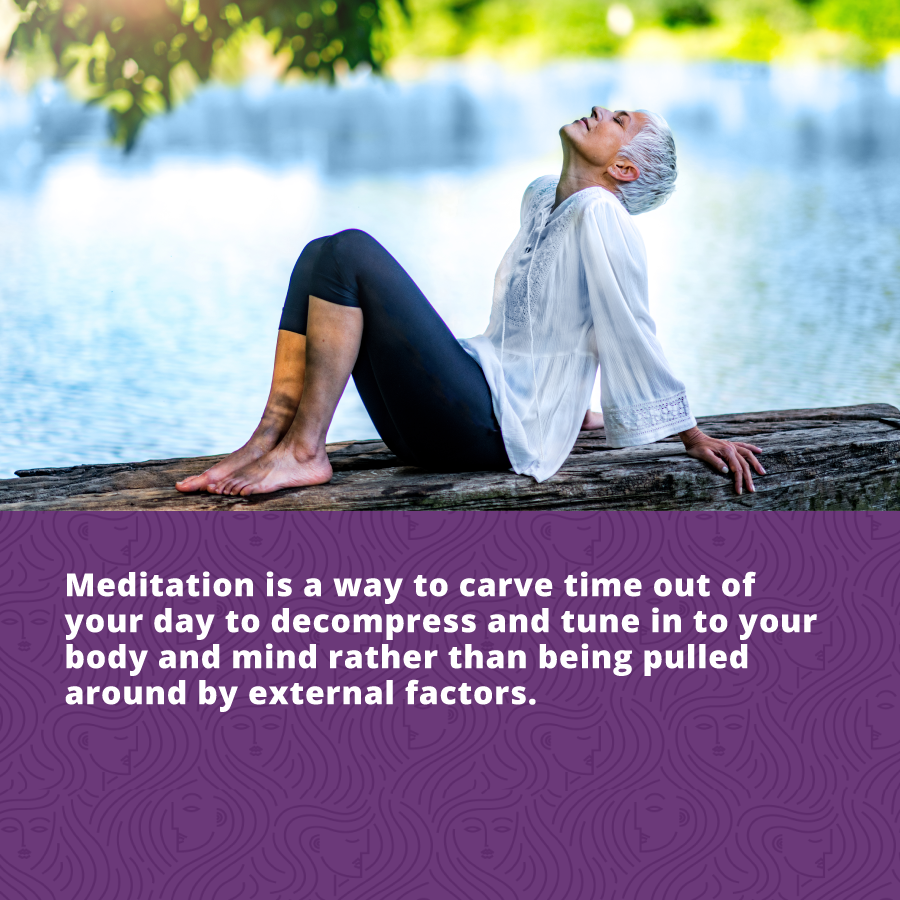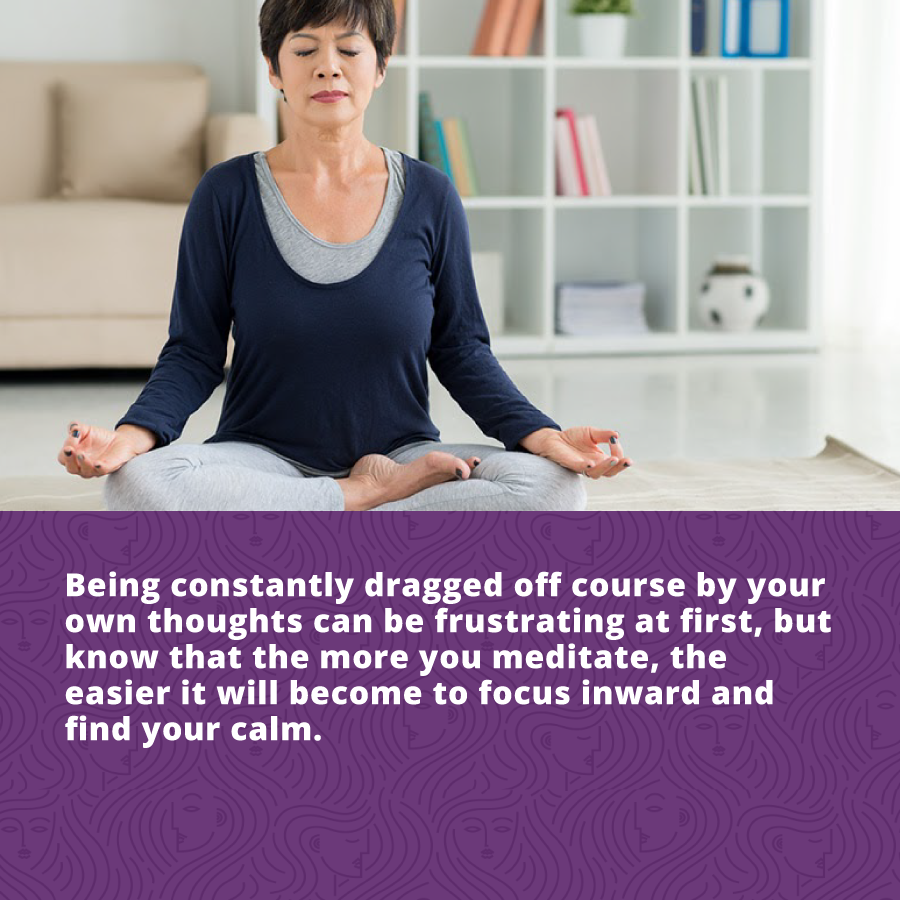Make Meditation Part Of Your Self-Care Routine
Gone are the days when self-care routines only meant soaking in a bath and applying a face mask. Don’t get us wrong, we love a nice hot bath to relax! But today, self-care means prioritizing your mental and physical wellbeing first.
It seems as though everyone is meditating these days. And for good reason. Meditation can have myriad benefits for your mind and body. Research has shown that mindfulness meditation, in which you stay present at the moment and observe yourself and the world around you rather than react to it, is responsible for many health benefits. Taking the time to find peace and focus inward can result in lower blood pressure, reduced anxiety, reduced pain, heightened creativity, and bolstered immunity, for starters. Practicing regular meditation can calm your mind, keep your stress in check and provide a respite from insomnia, compulsive eating, and depression.
Meditation isn’t just for hippies and Whole Foods enthusiasts. Anyone can take up a meditation practice and everyone should. You don’t have to wrap yourself in robes and sit atop a mountain, chanting to find a little inner peace. Here’s how you can make meditation a pillar in your self-care routine and experience the peace, tranquility, and good health that it brings.

The Science-Based Benefits of Meditation
One misconception many women have is that meditation has to be a spiritual practice. While it definitely can be, it doesn’t have to be strictly “spiritual”; meditation is a way to carve time out of your day to decompress and tune in to your body and mind rather than being pulled around by external factors. It has powerful science-based benefits far beyond creating “good vibes”. Here’s why you should include it in your daily self-care routine:
- It helps us to manage anxiety: Though there are many different forms of anxiety and meditation practices, studies have found that in many cases meditation helped respondents to manage their anxiety and decrease the severity and frequency of anxious feelings.
- It reduces your body’s stress response: Meditation has been found to reduce the amount of cortisol produced by our bodies as a response to stressors. This helps us to sleep better, sharpen our minds, reduce the risk of depression, and manage blood pressure.
- It boosts your attention span: Our attention spans are decreasing rapidly! However, studies have observed that those who meditated frequently had better attention spans than those who did not. Additionally, it has been shown to improve the attention spans of “novice” meditators after just 8 weeks of daily practice.
- It helps to reduce age-related memory loss: There are many different methods of meditation, but studies have found that meditation can increase attention, memory, and mental quickness in older volunteers. It helps to keep your mind clear and sharp at any age.
Designate A Time And Place
Choose to meditate in a place that makes you feel comfortable and at ease, free from distraction, and, if at all possible, one that’s dedicated solely to your meditation practice. It doesn’t have to be a lofty space or perfectly zen empty room – just enough space for a comfortable chair or cushion. Adorn your area with candles or a picture to inspire a meditative mood.
Once you have a space, choose a time, preferably at the start of your day, for your meditation and the beginning of your self-care routine. If first thing in the morning doesn’t suit your schedule, squeeze meditation in whenever you can. What’s important is to dedicate uninterrupted time to your practice.
Start Small
We’ve all heard tales of dedicated monks meditating for hours, days or months. They started like you’ll start: with just a few minutes at a time. Start with 10 minutes. It sounds like an eternity, and when you’re just beginning your practice it can feel that way too, but as you meditate more and more, you’ll be able to sustain it for longer periods of time.
Set Your Intention
Why have you decided to embark on a meditation practice? Are you meditating to mitigate stress, become calmer and more open? Are you taking on a meditative practice to get in better touch with your mind and body? Whatever your reason, remind yourself of your intention before you sit down so it’s fresh in your mind when you begin to meditate.
Sit Up Straight
You want to be comfortable when you meditate, but not so comfortable that you drift off. Take an upright seat on a chair or cushion. Keep your spine straight and your head up. Rest your hands gently in your lap, allowing your eyes to close and your focus to turn inward.
Relax And Choose A Focus
It’s very important to your practice that you relax. Consciously release tension in your body by softening each part. Relax the muscles in your face, followed by your neck and shoulders, all the way down your back, and so on until your whole body feels loose. Breathe slowly and naturally.
Once you’ve relaxed your body, choose a place to focus your mind. It could be on your breath, as you pull each inhale through your nostrils and let it gently out. Focus on the rise and fall of your chest as you breathe. Move your mind from body part to body part, following sensations as they arise.

Gently Ignore Your Inner Chatter
This is something that many beginner meditators find extremely difficult. Your mind is going to wander in surprising directions. That much you can count on. When you find your mind drifting off or start engaging in an inner dialogue, guide yourself back to your focus. Being constantly dragged off course by your own thoughts can be frustrating at first, but know that the more you meditate, the easier it will become to focus inward and find your calm.
This guide to meditation and much more information on ways to improve your mental, physical and emotional health with a daily self-care routine is available in Younger In 8 Weeks: the Ultimate Guide To Aging.

